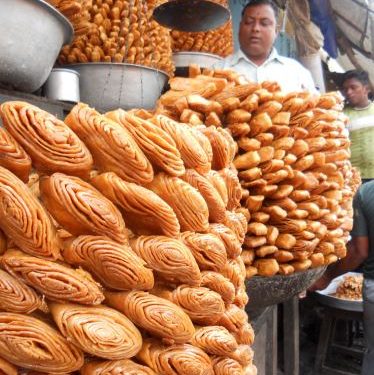Puri: Shrikhetra is famous all over the world for the temple of Lord Jagannath and its colourful beaches. Before the advent of Covid-19, this pilgrim city was a haven for tourists from all parts of the world. There were many who came to pay obeisance at the Srimandir, others arrived to enjoy the ambience as well as the delicacies that titillate the taste buds. This city is famous for its authentic varieties of food… with Khaja being one such gem.
Khaja is also called ‘Feni’. A trip to Puri is incomplete without packing home some ‘Mahaprasad’ and Khaja. The residents of Puri also send this delicacy to all parts of India in packed boxes made of palm leaves to their near and dear ones.
Khaja is a part of the dry prasad that is offered to Lord Jagannath and involves a unique method of preparation. Refined flour, ghee, sugar and oil are used to prepare Khaja. First, oil or ghee is added to the flour and mixed well to prepare the dough. It is then divided into small balls and rolled. The balls are rolled back again in layers to give them the desired shape. They are then deep fried in oil or ghee on medium flame until they turn golden brown on both the sides. Once they cool down, they are dipped into sugar syrup and filtered.
There are different varieties of Khaja, depending on the taste and shape. Among them are Gedi Khaja, Medium Khaja, So Khaja, Big Khaja and Chalu Khaja. The cost ranges from Rs 40 to Rs 500 per kilogram.
The localities around Srimandir and Swargadwar have a number of Khaja shops always bustling with activity as customers throng to buy and taste the delicacy. More than 10,000 people are directly and indirectly involved in the business.
Among the popular Khaja shops in this city are Narasimha Sweets, Taste and Twist, Maa Dakshin Kali Sweets, Lakshmi Narasimha Khaja Shop, Bhagwati, Jagannath and Jagabaliya.
Although the Khaja business is a year-long booming business, it is now facing dark days due to the advent of the pandemic and the subsequent phases of lockdown that came with it. Nevertheless, shop owners are hopeful that the business will improve with the influx of devotees and tourists once the threat of corona virus recedes.





































